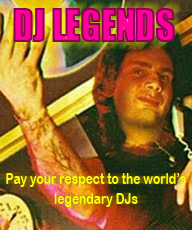We simply can't tell
We simply can't tell Posted on: 22.02.2013 by Lauretta Ehrhorn Yes this has been done but further proof that our ears simply aren't good enough to differentiate between higher and lower resolution audio. http://www.mixonline.com/recording/m..._new_sampling/ | |
| Dirk Veasman 22.02.2013 |
Originally Posted by mdcdesign
|
| Marshall Aby 22.02.2013 |
Originally Posted by SlvrDragon50
|
| nayit ruiz jaramillo 22.02.2013 |
Originally Posted by lethal_pizzle
|
| Marshall Aby 22.02.2013 |
Originally Posted by SlvrDragon50
The variance from this is tiny and probably within the margin for error. The results suggest that about one audiophile in twenty-five can tell the difference. |
| Gaynell Rydberg 22.02.2013 |
Originally Posted by D-Kem
@lethal_pizzle lulz. |
| Darren Teboe 22.02.2013 |
Originally Posted by mdcdesign
That almost suggests that the difference in quality is so minimal, that people need special systems to tell the difference. That doesn't really lead support that it is that much better. I don't believe anyone can argue that there IS a difference. If there wasn't, then roughly 50 percent of the people (regardless of lucky guesses or not) wouldn't be able to be correct on that survey. There is the other side of this argument as well though. Seeing how even audio engineers are getting only 50% right along with the average person, it speaks to a more to the point issue on this topic. That is that even though it's 50%, it's not some overwhelming difference, and more to the point, if only 50% are getting the difference, that backs up the fact that there is only a minimal difference on a test that gives people good odds on getting it right even if they don't know. At the end of the day, a lesser than best quality format is more than up to snuff if half the people can't tell the difference. |
| Gaynell Rydberg 22.02.2013 |
Originally Posted by D-Kem
The number of times out of 554 that the listeners correctly identified which system was which was 276, or 49.82 percent — exactly the same thing that would have happened if they had based their responses on flipping a coin. Audiophiles and working engineers did slightly better, or 52.7-percent correct, while those who could hear above 15 kHz actually did worse, or 45.3 percent. Women, who were involved in less than 10 percent of the trials, did relatively poorly, getting just 37.5-percent right.
|
| Lauretta Ehrhorn 22.02.2013 | Yes this has been done but further proof that our ears simply aren't good enough to differentiate between higher and lower resolution audio. http://www.mixonline.com/recording/m..._new_sampling/ |
| Dirk Veasman 22.02.2013 |
Originally Posted by mdcdesign
|
| Marshall Aby 22.02.2013 |
Originally Posted by SlvrDragon50
|
| nayit ruiz jaramillo 22.02.2013 |
Originally Posted by lethal_pizzle
|
| Gaynell Rydberg 22.02.2013 | The design of the experiment should account for probability of people merely guessing it correctly through repetition eliminating the 50% correct if nobody could tell the difference. I didn't read through the methods, but if they didnt do that, the study is severely flawed. |
| Marshall Aby 22.02.2013 |
Originally Posted by SlvrDragon50
The variance from this is tiny and probably within the margin for error. The results suggest that about one audiophile in twenty-five can tell the difference. |
| Gaynell Rydberg 22.02.2013 |
Originally Posted by D-Kem
@lethal_pizzle lulz. |
| Marshall Aby 22.02.2013 | It certainly proves that if you were playing in a evening club to a crowd entirely made up of audiophiles and sound engineers, that maybe one of two of them could tell a difference. But they'd all be arguing about it all evening anyway. Seriously, screw that club. |
| Jerica Salava 22.02.2013 | I need my 24 BIT 96 KHz sample mastered in a $2.8 million studio so it sounds pristine on my $5 Chinese iPod earbuds. |
| Lauretta Ehrhorn 22.02.2013 | 52.7% isn't enough to be proof. It means they got it wrong 47.3% of the time. Anyway I thought it was an interesting article worth sharing. |
| Darren Teboe 22.02.2013 |
Originally Posted by mdcdesign
That almost suggests that the difference in quality is so minimal, that people need special systems to tell the difference. That doesn't really lead support that it is that much better. I don't believe anyone can argue that there IS a difference. If there wasn't, then roughly 50 percent of the people (regardless of lucky guesses or not) wouldn't be able to be correct on that survey. There is the other side of this argument as well though. Seeing how even audio engineers are getting only 50% right along with the average person, it speaks to a more to the point issue on this topic. That is that even though it's 50%, it's not some overwhelming difference, and more to the point, if only 50% are getting the difference, that backs up the fact that there is only a minimal difference on a test that gives people good odds on getting it right even if they don't know. At the end of the day, a lesser than best quality format is more than up to snuff if half the people can't tell the difference. |
| Doreen Schurle 22.02.2013 | Also, I'm willing to bet that if you performed the tests on the peoples' OWN gear , the rate of correct responses would shoot up dramatically. |
| Gaynell Rydberg 22.02.2013 |
Originally Posted by D-Kem
The number of times out of 554 that the listeners correctly identified which system was which was 276, or 49.82 percent — exactly the same thing that would have happened if they had based their responses on flipping a coin. Audiophiles and working engineers did slightly better, or 52.7-percent correct, while those who could hear above 15 kHz actually did worse, or 45.3 percent. Women, who were involved in less than 10 percent of the trials, did relatively poorly, getting just 37.5-percent right.
|
| Lauretta Ehrhorn 22.02.2013 | Yep I find it surprising too but the double bind tests appears to validate this argument. There increasingly seems to be more and more evidence to argue that even the best of ears has difficulty telling. |
| Doreen Schurle 22.02.2013 | Sorry, but I've been hearing this bollocks for 20 years now, and it's the same thing now as it was then - bollocks. I've heard the same thing about SD/HD video, cassette vs vinyl, DAB vs FM, etc etc. The simple fact is that there ARE individuals out there who can tell the difference between one medium and another. |
<< Back to General DiscussionReply



